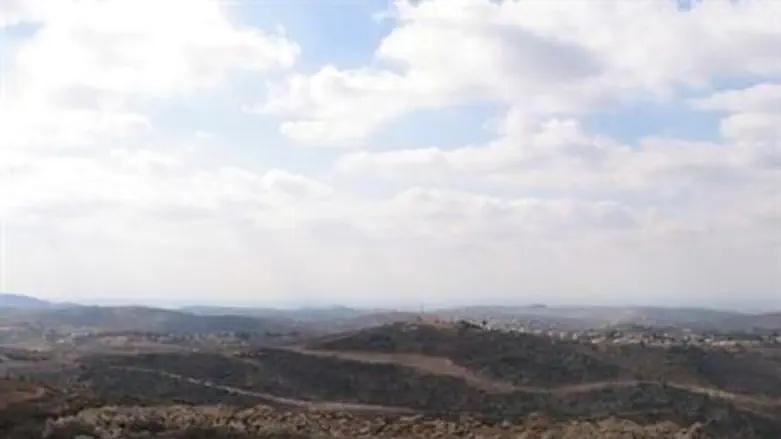
Communications Minister Moshe Kachlon visited the town of Ateret, in Binyamin, overlooking the ongoing early-construction work for a new PA Arab city, Rawabi – and was shocked.
“Whoa, that’s scary!” he reportedly said, as he gazed from Ateret to the planned site of Rawabi, just three kilometers to the north.
Yesha (Judea and Samaria) settlement leaders showed Kachlon, of the Likud, the terrific significance that the construction of the city will have on the Jewish towns nearby. Specifically, Prime Minister Netanyahu pledged recently to hand over to PA control of the area through which the city’s access road will pass –angering the Jewish residents’ intensely, as well as Kachlon.
Giving the PA control of that north-south road will grant the PA significant territorial contiguity from Ramallah to Bir Zeit to Rawabi to Shechem.
Kachlon responded sharply: “This map must be shown to all the Cabinet ministers before they vote on whether to give this area to the PA. At the next meeting of Likud Cabinet ministers, this Sunday, I will raise the issue… I object strenuously to Netanyahu’s idea of giving this access road away.”
The land that the route is to traverse is currently categorized under the Oslo Accords as Area C, under full Israeli control. The PA has requested that it be made Area B, and thus come under administrative control of the Palestinian Authority, though it will still remain under Israeli military control. (Area A is under full PA control.)
School Protest
This coming Tuesday, the parents in Ateret and nearby N’vei Tzuf will send their children off to morning classes – but not in school. The children will study in a make-shift class under the Bir Zeit bridge along the east-west road leading from Ofrah to Rosh HaAyin, past Ateret and N’vei Tzuf. This is the artery that is to be trans-sected by the planned Arab highway to Rawabi.
Residents say the protest is aimed at emphasizing that handing over the area to the PA is liable to cut off eastern Binyamin from western Binyamin, preventing traffic from getting through and children from reaching their schools.
